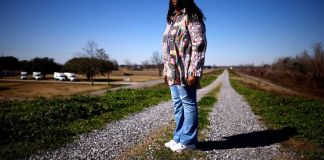Kyle Bass’ water extraction plan in East Texas sparks legal battles and legislation.
AUSTIN, Texas — A water war is brewing in Texas. At the center is Dallas hedge fund manager Kyle Bass, whose plan to pump 15 billion gallons of water a year from East Texas aquifers has sparked lawsuits, packed hearings, and a flurry of new legislation aimed at stopping him.
Inside a marathon 11-hour House committee hearing, anger erupted as rural landowners, farmers, and businesses confronted Bass.
“Let me be clear, this project sets a dangerous precedent,” warned State Rep. Trent Ashby.
Bass defended his project, saying Texas must act before cities face a water crisis.
“There is a lot of scare and fear mongering going on here,” Bass said. “When you run out of water, you just run out of water, you just run out, and that’s likely to happen moving forward. You will see municipalities somewhere west of DFW or south of Waco just run out. It’s going to happen.”
But opponents — including Sanderson Farms, one of the nation’s largest chicken producers — say the project could drain East Texas dry. Sanderson Farms and a coalition of local growers filed a lawsuit claiming Bass “manipulated the district’s process to his advantage” through conflicts of interest on the groundwater board.
The lawsuit argues the plan would nearly double the region’s average groundwater usage and devastate communities that depend on aquifers for drinking water, farms, and businesses.
Rep. Cody Harris Steps In
In response, State Rep. Cody Harris of Palestine has filed four bills to halt massive groundwater exports.
“Well, it’s really more than that. I would, it’s not just about Kyle Bass at this point,” Harris said. “This is about protecting groundwater for all of Texas, not just East Texas, because one of the things that we learned through the hearing, the 11-hour hearing that I conducted at the Capitol is that, you know, if we put our groundwater aquifers at risk, that can translate into risk of our surface water feeding into the reservoirs that supply the drinking water for the entire DFW region or the entire Houston area region.”
What the Four Bills Do
- House Bill 215: Ends the rule of capture for high-capacity wells pumping more than 25,000 gallons per day. It also makes landowners liable if their pumping harms neighbors.
- House Bill 216: Prevents groundwater conservation districts from approving permits if the applicant’s wells together would use more than 5% of the modeled available groundwater in a district.
“So, in real terms, what that means, especially for this particular project, the model available groundwater for the Neches and Trinity Valley’s GCD for Henderson and Anderson Counties is about 36,000 acre feet per year for everyone in those counties to use the aquifer,” Harris explained. “Mr. Bass’s project or Conservation Equity Management’s project accounts for almost 50,000 acre feet per year in those two aquifers.”
- House Bill 217: Shields groundwater conservation districts from lawsuits when they deny permits to protect aquifers.
- House Bill 218: Requires two-thirds of surrounding groundwater conservation districts to approve any export permit, preventing a single district from making the decision.
Harris compared the fight over water to Texas’s historic oil boom.
“That’s a really good analogy because originally, oil was rule of capture, and that’s why you had so many different oil wells in Kilgore at Spindletop, all stacked right on top of each other because whoever could stick the biggest straw in the ground won,” Harris said. “That’s how water is treated right now.”
Harris insists the bills target only large-scale commercial pumping — not family farmers.
“We aren’t touching that,” the state representative said. “We’re specifically going after high-capacity production wells and nothing else.”
Sanderson Farms joins the fight
Sanderson Farms, which employs more than 5,700 people across East Texas, argues Bass’s project would force growers to drill deeper wells, driving up costs and threatening their livelihoods.
In the lawsuit, the company and a coalition of poultry farmers claim the permitting process was “irreparably tainted” by board members with conflicts of interest.
What’s next?
The bills have not yet been added to the governor’s special session call, but Harris says momentum is building.
“He has not added it to the special session call yet,” Harris said. “Now I’ve had discussions with the governor over this. He understands the crisis and the need to modernize our laws, and so the task that he’s given me is to go get the support of both chambers, get a majority of the support in both chambers, and then come back and he’ll seriously consider adding it to the call.”
For many Texans, the fight has become about more than one project.
“When it comes down to it, if we don’t have water, we have nothing,” Harris said. “Water is our most precious resource, and we have to protect it.”
Great Job & the Team @ WFAA RSS Feed: news Source link for sharing this story.




